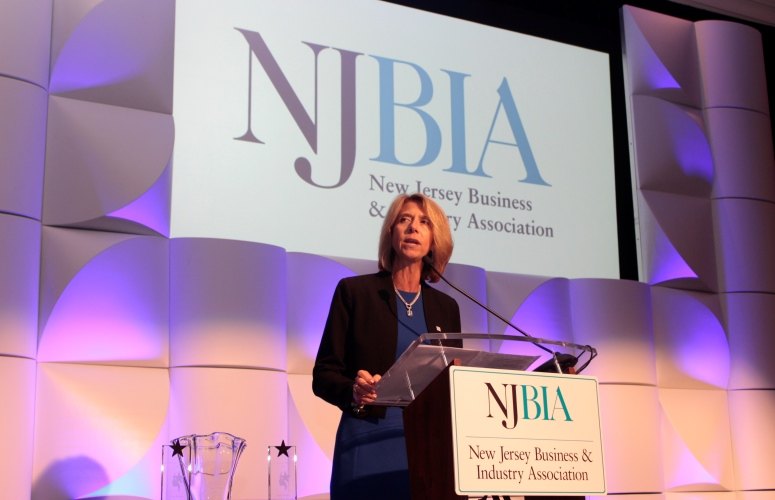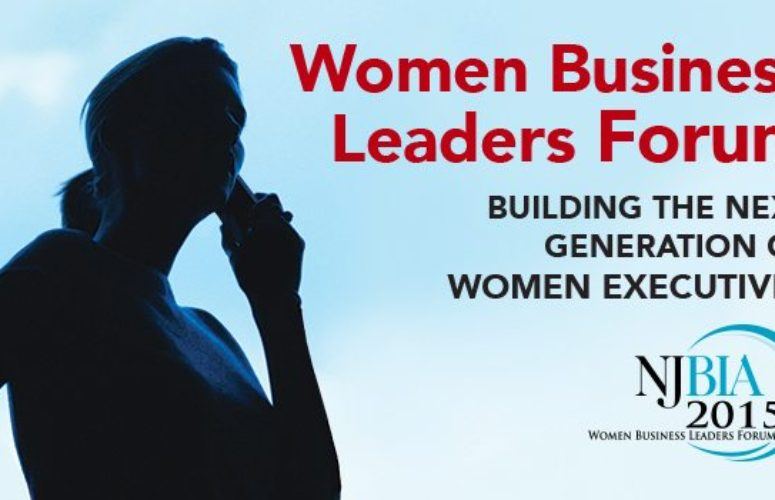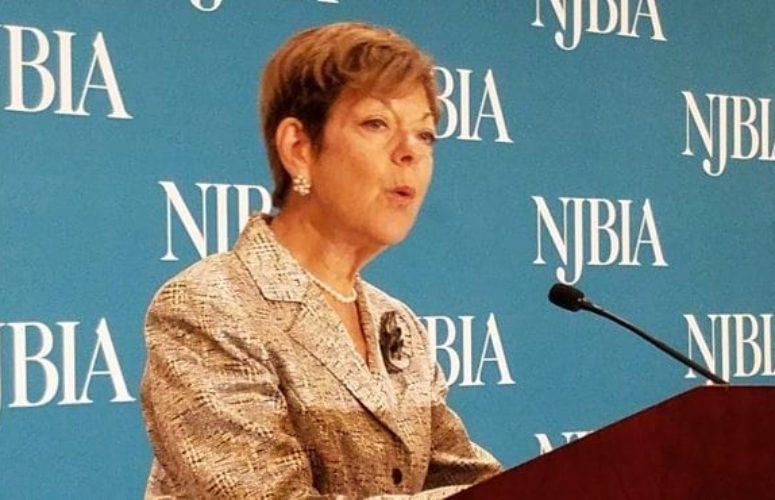
Celebrating Empowerment at NJBIA Women Business Event
By George N. Saliba and Anthony Birritteri, Editors On Sep 14, 2018Following one’s ambitions, taking chances and not being afraid of failure were all key topics discussed today at the New Jersey Business & Industry Association’s (NJBIA’s) fifth annual Women Business Leaders Forum. More than 500 people attended the event, held at Newark Liberty Airport Marriott, to hear 30 top-tier women business leaders (and a few men) offer a wide range of insights regarding women, success and the corporate world – all against the backdrop of the event’s theme: “Empowering Together.”
NJBIA’s President and CEO Michele Siekerka cited that last year, 38 percent of the 358 newly-created or vacant Fortune 500 board seats went to women, a 10 percent increase over 2016. She added, however, “We know there is still much to be done, because … men hold 78 percent of the Fortune 500 seats. Why we are here today is [because] gender diversity is so important in the C-Suite and the board room. Studies and research tell us that companies that have more women at the top have a 41 percent better return on equity than those that don’t. That makes economic sense.”
Siekerka expanded on the event’s “Empowering Together” theme saying, “Make no doubt about it: Empowerment and self-empowerment is absolutely a leadership skill because leaders become great, not because of their power, but because of their ability to empower others.”
It was New Jersey American Water President Deborah Degillio who told the audience that years ago, she was working as a waitress in Wisconsin when a female executive who was a repeat customer recognized Degillio’s work ethic and asked her to join her utility company. Degillio said, “Because of my work ethic – by making balloon animals [for customers’ children] and waiting on tables, and working my way through college – she wanted me to come work for her. I took the job, and that is why I started in the utility industry. … So, watching those relationships, whether it is somebody who you meet on the train or somebody who you sit next to at work – be mindful that you are always ‘on.’”
Another success aspect was explored by Jill Kaplan, president of New York/New Jersey, for United Airlines. She told the audience, “I am a big fan of failing forward. What does that mean? That means taking chances; taking risks. Not every day are you going to have a home run, but singles, doubles, and – frankly – if none of it works, you can learn from that. … To me, that is critically important.
“And that is how we move forward; that is how companies move forward; that’s how people and families and organizations move forward. It is not necessarily something that is always fun and easy … but, you have on the other side, honestly … you learn about yourself.”
Karen J. Kessler – arguably the region’s most sought-after crisis and reputation management consultant – told the crowd, “There is a difference between networking and having a network. Networking is when we all sit here and say, ‘Here is my card’ ‘LinkedIn, LinkedIn, LinkedIn’ … and then that’s it, and it dies.
“But, a network – a real network – is what it is all about. It is about investing yourself in that person. It is about saying, ‘My best friends, including some of them in this room, are because I called up and said, ‘Can I have coffee with you?’ It is about asking questions, learning who they are, and it is about offering help when you have absolutely nothing to gain from it, or saying, ‘There is someone I want you to meet,’ when you have no reason to benefit from it, at all.
“Because it is going to come back to you, and those are the people you are going to turn to when you need help. Those are the relationships that you are going to make. …. That’s a step; that’s a start; it is not an end. LinkedIn is a start; it is not an end. All of that: I really want you to understand: That face to face [interaction] and real relationship building is what life is really all about.”
Among the various breakout sessions at the conference was “The Challenges Leaders Face,” moderated by former Lt. Governor Kim Guadagno, who is now a partner at the law firm of Connell Foley LLP.
She began the discussion by asking the panelists how they overcame a personal career failure.
Krishna Powell, president of HR 4 Your Small Biz, LLC, recalled the time when, as a new hire at a Fortune 100 firm, she was in a group meeting where – as the new person, a woman and an African American – she kept quiet, not divulging her own business improvement idea.
“When I left the meeting, I told the secretary about my idea, who shared it with the team leader, who, in turn, asked me, ‘Why didn’t you speak up at the meeting?’ My failure was that I didn’t let my voice be heard,” she recalled.
Cary Feliciano, project manager at FEM Real Estate, a family business founded by his mother Mimi Feliciano, had a similar story to tell. His failure, which he says he took personally because of the family business environment, was losing a battle to create visual renderings of a condominium project the company is developing in Long Branch. “Everyone thought the project didn’t need visuals … that it would sell itself. I realized that a ‘wow’ factor was missing in the project. I lost the battle, but I conceded with a caveat that another opinion, from another developer, be heard. He had the same opinion I did.
Regarding success philosophies, Charlene E. Davis, Esq., associate vice president and head of healthcare compliance North America for Sun Pharmaceuticals Industries, Inc., said, “The timeline of one’s career is filled with inflection points where you have to make choices. It’s great having successes due to your choices, but you learn more when you don’t succeed.” She added that in today’s hectic business world, there is also little time to reflect and wallow in one’s failures.
On the other side of the coin, Guadagno asked the panelists to describe a pivotal career success.
Donna Fontana, senior vice president, core sales at Fidelity Investments, recalled the time early in her career when she was criticized for baking and giving homemade cookies to prospective clients on her sales calls. However, she continued baking and giving. One major outcome of this practice was when a company chose to conduct business with her firm after 27 years with a competitor because it was looking for a better relationship and “the cookies were a step in the right direction,” Fontana recalled the owner saying. “So, I was initially criticized, but baking cookies was the right thing to do. The lesson is to be different and be true to yourself.”
On being successful, Davis said that people should map out what they want, and advocate for it. “You have to work with the philosophy that what you do is your autograph … you are leaving a signature for all to see,” she said.
Krishna Powell, president of HR 4 Your Small Biz LLC, commented that, overall, her 20-year success in the HR field was due to always pursuing her passion. Her passion today is helping young professionals through her boutique-style HR consulting and talent development firm.
On the question of leadership, she advised the audience that having a “heart of service” to staff and clients, is required. She also added that one must give the same consideration to the intern at a company as the person with 30 year’s experience.
She also said one must always be a dreamer, “whether you are in a position for 10, to 20, to 30 years, I challenge you to dream again because age does not dictate your success in life.”
Other breakout sessions at the conference included: Growth of the Women’s Network; Effective Communications During Difficult Conversations; Successful Negotiation Tactics; and Bridging the Confidence Gap.
More coverage of the event will appear in the coming days, including, but not limited to, that of beauty industry legend Bobbi Brown, the forum’s keynote speaker.
To access more business news, visit NJB News Now.
Related Articles:





